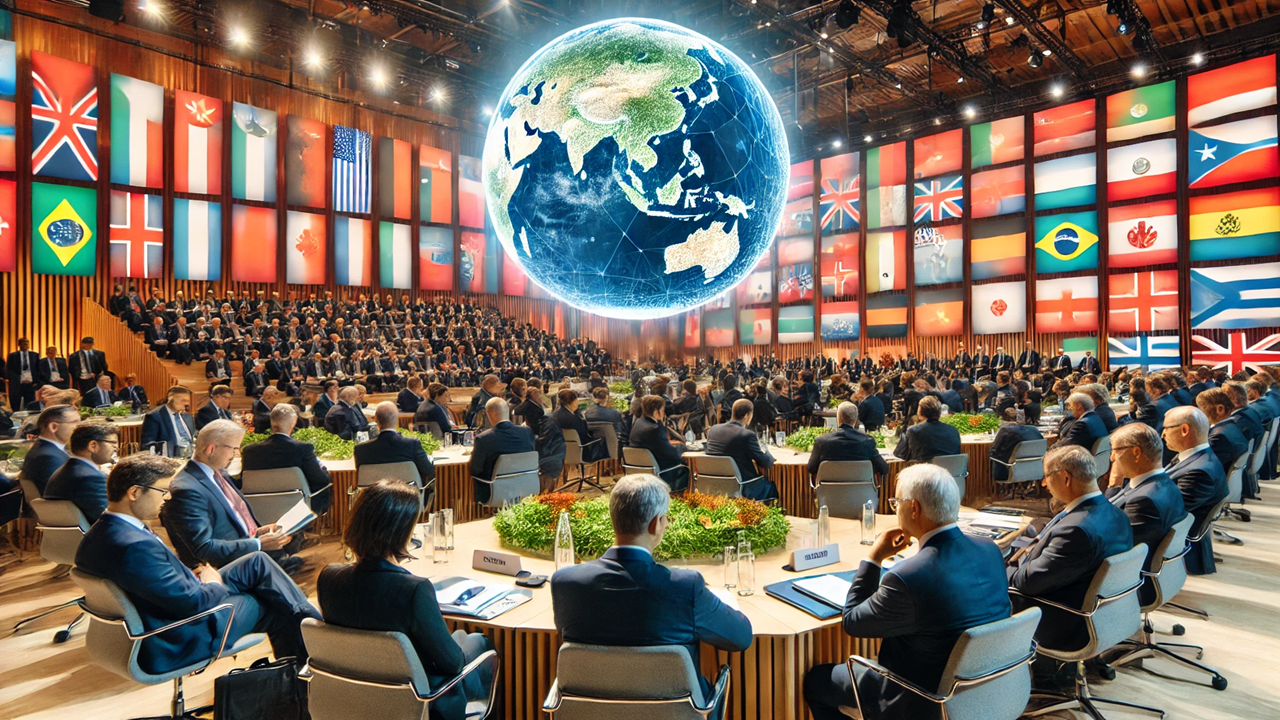Sustainable Investment Takes Center Stage: Insights from the 2024 Results and Impact Report
The Division on Investment and Enterprise, Results and Impact Report 2024 showcases UNCTAD’s efforts to promote sustainable and inclusive global investment. Under the leadership of James Zhan, the Division has driven reforms through initiatives like the World Investment Forum and World Investment Report, focusing on sustainable energy, climate finance, and healthcare. The report emphasizes the importance of aligning investment with sustainable development goals (SDGs) and highlights the Division’s role in shaping global policies and fostering partnerships that drive meaningful change.

The global push for sustainable and inclusive development has taken center stage in recent years, and nowhere is this more evident than in the United Nations Conference on Trade and Development (UNCTAD)’s Division on Investment and Enterprise, Results and Impact Report 2024. This comprehensive report showcases the efforts, achievements, and future direction of the Division, emphasizing its pivotal role in shaping global investment policies that align with sustainable development goals (SDGs).
With a strategic shift that began in the wake of the 2008 financial crisis, the Division has prioritized investments that not only drive economic growth but also promote social and environmental well-being. Under the leadership of outgoing Director James Zhan, who concluded his 15-year tenure in December 2023, the Division has spearheaded initiatives that emphasize responsible, sustainable, and inclusive investment practices.
Building a Framework for Sustainable Investment
Central to the Division’s work is the development of a robust framework for sustainable investment, which has been instrumental in driving national and international reforms. The Investment Policy Framework for Sustainable Development (IPFSD) has become a vital tool for countries and regions looking to modernize their investment policies to align with global SDGs. This flexible framework offers guiding principles and operational guidelines that ensure investments contribute meaningfully to both economic and social progress.
The Division’s strategy has been multifaceted, focusing on entrepreneurship, capacity-building, and facilitating investment in sectors critical to sustainable development, such as renewable energy, healthcare, and infrastructure. The success of this framework is evident in the increasing number of countries—over 160 to date—that have adopted its principles to create more inclusive investment policies.
Global Platforms and Policy Impact
The Division’s influence is perhaps most visible through two of its flagship initiatives—the World Investment Forum (WIF) and the World Investment Report (WIR). These platforms have fostered international dialogue on emerging investment challenges, helping policymakers, business leaders, and stakeholders collaborate on solutions that address issues like the energy transition, climate change, and health crises.
In 2023, the 8th World Investment Forum was held in Abu Dhabi, drawing over 8,000 participants from 157 countries, including heads of state, ministers, business executives, and international organizations. Under the theme “Investing in Sustainable Development,” the event facilitated critical discussions on sustainable finance, food security, climate finance, and public-private partnerships. The WIF has grown into a premier platform for global investment dialogue and action, helping countries and regions navigate the complexities of modern investment challenges.
Similarly, the World Investment Report 2023 centered on the theme of investing in sustainable energy for all. As the world grapples with overlapping crises such as the war in Ukraine, rising food and energy prices, and the ongoing climate crisis, the WIR offered timely insights and policy recommendations to help nations boost investments in renewable energy. The report highlighted the growing gap between global energy needs and actual investments in developing nations, where an estimated $1.7 trillion in renewable energy investments is required annually to meet climate goals.
Driving Change through Partnerships and Capacity Building
One of the Division’s most impactful contributions has been its efforts to drive sustainable investment through partnerships and capacity-building initiatives. The establishment of the Global Alliance of Special Economic Zones (GASEZ) is a testament to the Division’s commitment to fostering collaboration and innovation in sustainable investment. Through GASEZ, over 50 special economic zones (SEZs) worldwide have been identified for their leadership in promoting investment in sustainable development. These SEZs serve as models for integrating economic growth with environmental sustainability and social progress.
The Division’s capacity-building programs have been particularly beneficial for Least Developed Countries (LDCs), providing essential training and technical assistance to help these nations create more attractive investment climates. For example, initiatives aimed at promoting investment in local pharmaceutical production have addressed critical healthcare challenges in East African nations like Kenya, Ethiopia, and Uganda, fostering productive capacity for essential antibiotics and vaccines.
The Road Ahead: Continued Commitment to Sustainable Development
The Division on Investment and Enterprise, Results and Impact Report 2024 not only reflects on past achievements but also sets the stage for the future. As the world faces ongoing economic, environmental, and social challenges, the Division remains committed to ensuring that investments contribute to sustainable and inclusive growth.
From climate finance to responsible business practices, the Division’s work underscores the importance of aligning investment with global goals that prioritize people, the planet, and prosperity. The continued efforts to engage with stakeholders through forums, reports, and capacity-building initiatives will be crucial in addressing the growing needs of developing countries and advancing the SDGs.
The work of the Division, led by a global network of partnerships and supported by data-driven research, offers a roadmap for how investment can be a powerful tool for achieving a more equitable and sustainable world.
- FIRST PUBLISHED IN:
- Devdiscourse
ALSO READ
IFC and Central Puerto Partner on $600M Renewable Energy Transmission Line for Argentina’s Mining Sector
Narmadapuram: New Hub for Renewable Energy Investment
Madhya Pradesh's Narmadapuram Sparkles with New Renewable Energy Units
ADB Approves $30M Facility to Boost Sri Lanka's Renewable Energy Goals and Power Sector Sustainability
Balancing Power: A Game Changer for Renewable Energy Success










